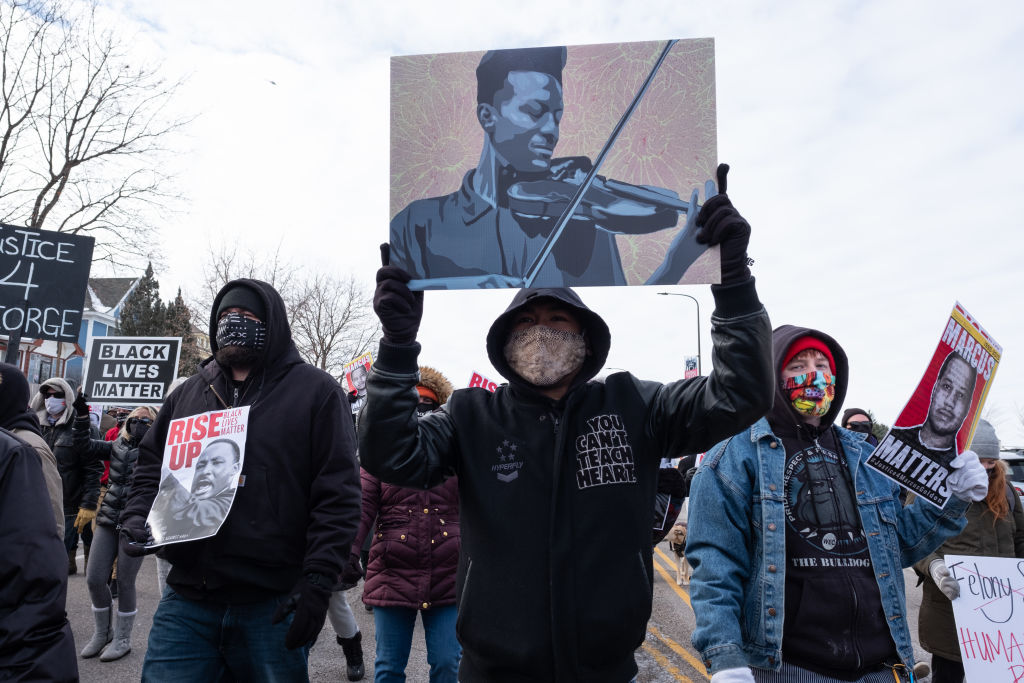
Source: NurPhoto / Getty
Over two years after Aurora, Colo. police officers killed Elijah McClain, and the city has settled with his family. The agreement was reached in federal court Friday due to a lawsuit filed by the family last August.
The family will receive $15 million, considered the largest such settlement in Aurora’s history. An allocation hearing will determine the split between McClain’s parents.
Large police settlements cannot replace the loss of loved ones and often do little to deter police behavior. A report from Five Thiry-Eight and The Marshall Project documented the millions paid out by cities annually and the difficulty with holding police departments accountable.
According to the report, the three largest cities spent $2.5 billion settling police brutality cases in the past ten years. Settlements often have little to no repercussions for officers or their departments.
Stopped by police on Aug. 24, 2019, the 23-year-old McClain was unjustly stopped by police after reports of a “suspicious” person. An independent investigation found no evidence to support stopping McClain. It also determined that police and emergency responders “made a series of crucial errors that ended in the young man’s death,” as explained by NBC News.
As previously reported by NewsOne, five people were ultimately charged in September with killing McClain.
The young man, who was wearing a ski mask at the time, was on his way home from a gas station where he purchased four cans of Brisk tea.
Eventually, the confrontation between the police and McClain — a massage therapist and violinist — escalated, and cops put him in a chokehold. He was also forced to the ground for 15 minutes, and he eventually started vomiting and saying that he couldn’t breathe. McClain was put in a carotid hold, which restricts blood flow to the brain.
According to Elijah’s family, he was anemic, and he usually wore a ski mask to keep his face warm while he was outside walking.
Police claimed McClain was in an “agitated mental state,” which caused the cops to request backup from Aurora Fire paramedics, who injected McClain with the sedative ketamine to respond to his reported anxiety. While in the ambulance vehicle en route to the hospital, McClain went into cardiac arrest, and he eventually died at the hospital days later on Aug. 30 after being taken off life support.
See Also:
As Aurora PD’s Racism Is Confirmed, Elijah McClain’s Mom Fears They’ll ‘Mess Up Again’
[ione_media_gallery id=”3944536″ overlay=”true”]
